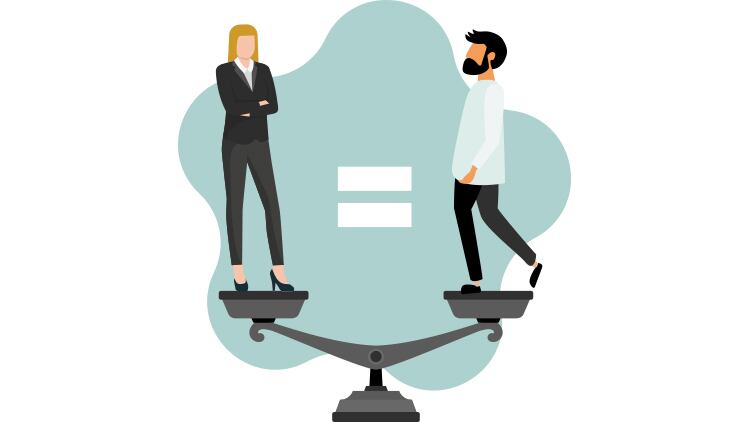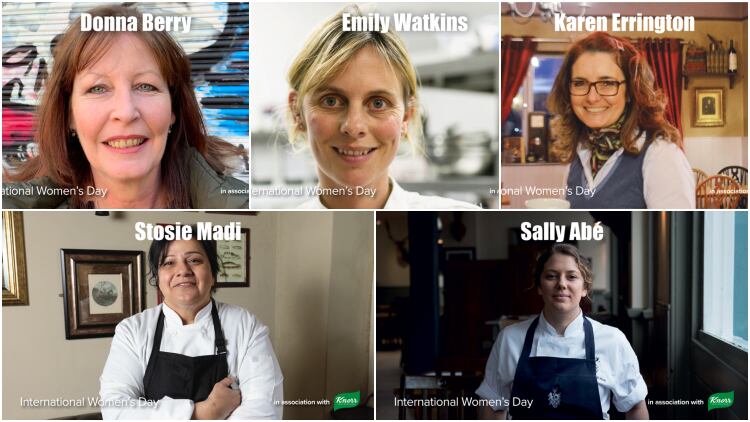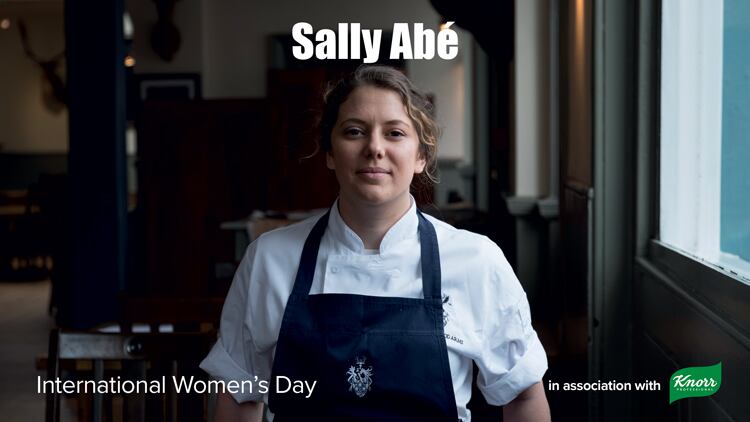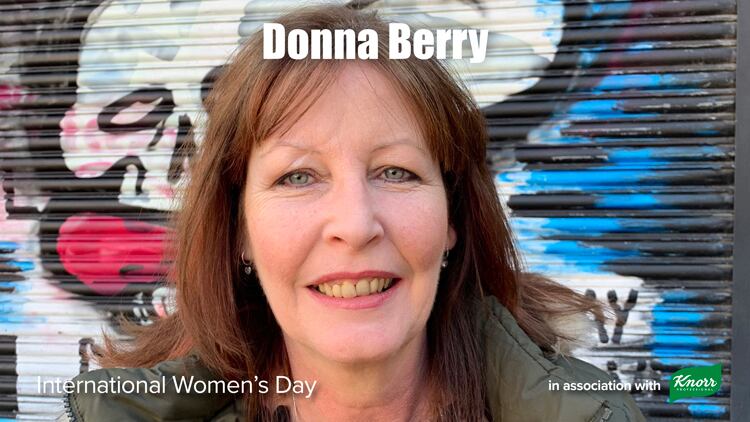Working in a very male-orientated pub and in fact, the wider industry can be depressingly challenging at times. Particularly when about 90% of the customers are men – men who ‘know’ their beer, men who ‘know’ their football, and men who apparently ‘know’ everything.
Not that I have anything against men, of course. I just have something against people who see women as lesser beings or objects. From my experiences of working in hospitality, that has unfortunately often been the case. It means women aren’t treated equally in every respect and that sexism is still part of everyday life for women in the trade.
Debilitating and offensive
One of the most troubling, debilitating and offensive things that must stop is sexist comments which, as a member of bar staff for over eight years, I’ve had to battle far too often.
- Women who lead in pub kitchens
- The women who are leading in beer
- The women who lead in the on-trade
- The women bartenders who are shaking things up
- The women at the top of on-trade PR and marketing
These comments range from the simple things like someone saying “nice baps” to me while I was standing next to a sign advertising sandwiches. When it happened, I regarded it as a throwaway remark and dismissed it with a couple of stern words to the culprit. But on reflection, it shouldn’t have been said.
But it can move from simple ‘jokes’ to something darker quite easily, like when I’m bending down to pick something up, I’ve had men making gestures or the obvious comment of “while you’re down there”.
So, when I react to these sorts of things, showing how frustrated and offended I am with the sternness of my voice, I get asked if I’m “on the blob” or “got the painters in?”. A man wouldn’t be addressed in this way.
On another occasion, a group of men were in the pub while I was working one afternoon and asked me: “Do you have any Irish in you?” I naively responded “no” to which they replied “do you want some?”
At that time I was about 19 years old and wasn’t really sure how to deal with it. However, my then boss asked the men to finish their drinks and leave as he wasn’t prepared to serve them if they spoke to his staff in that way.
I was so pleased to have his support, but it got me thinking – why does he need to do it in the first place?
Lucky for me, I have learnt through the years to stand up to such people and tell them where to go with some of their comments.
Whether it’s right or wrong, I shouldn’t have to respond to it in the first place because it shouldn’t be be said. Full stop.
There have been times where I haven’t been taken seriously when getting people to leave the pub. Men have been threatening towards me and have been quite aggressive.
Standing up to men
I’m lucky in that I’m not afraid to stand up to these men, but I have also always had the backing of other staff and the pub’s regulars to help me if required.
One experience – probably the one that sticks in my mind the most – was during the many, many times I have been a customer at a pub, rather than a member of staff.
A young man, who I did know, kept badgering me and after I politely told him to leave me alone, he made the mistake of slapping my backside.
Before I even had time to think, the palm of my hand connected with the side of his face, and he sloped away, clutching his head.
While this may not be the best response, in that split second, my brain realised him smacking my bum wasn’t right and I reacted in the same way.
But, of course, I’m far from alone in my experiences. In this issue, women from across the trade have shared their experiences of sexism.
The Alchemist head of brand Jenny McPhee outlines how she was treated in a workplace outside of the UK.
She says: “Years ago, as a server, I worked in a bar and grill in Canada, we had to wear no less than four-inch heels and have a full face of make-up before being allowed on the floor.
“Thinking back, I don’t know how this passed health and safety, and it annoys me now that I just accepted it.
“I am thankful that I now work for a business that places real emphasis on women in senior roles with 40% of those positions being held by women at the Alchemist.”
Hospitality sexism abroad
The New World Trading Company HR project manager Katie Longbottom expresses similar sentiments about what happened to her when she was travelling and working in hospitality.
“My experiences of sexism in the workplace was a fair few moons ago as a young backpacker abroad,” she says.
“I have been fortunate enough to not have encountered this personally in this country. On two occasions I was unable to get the role I wanted because of my sex and on another I was demoted from a role after being ‘wrongfully promoted’ by a supervisor.
“The owner used to call me ‘that thing in the red’ (I often wore a red T-shirt). My employment did not last long. I left this role and made all the noise I desired about it... much to the owner’s total infuriation. I must add it was not ‘very HR’ of me, but was certainly impactful for those colleagues I left behind.
“Working for amazing and open-minded companies has allowed me and so many others to let go of the perceptions of sexism in the workplace and feel equal to a level of normality.
“It is not something I would consider as a barrier for me and my experiences with sexism in my earlier years have made certain that I would never keep quiet if it ever did happen to me, or someone I knew, again.”
Accommodating everyone
London-based Livelyhood managing director Sarah Wall highlights how previous experiences of sexism led her to ensure her business accommodates everyone, no matter their gender.
She says: “When I was employed during my 20s, it (sexism) was something that was very evident in the places I worked in at the time. Unfortunately, in hospitality, it is something that we know does happen but we must be very clear it has no place to.
“It is important to ensure that message is clearly communicated to encourage those who may have had such experiences to come forward and hopefully stamp it out entirely.
“For me personally, as a business owner, I can recall times when individuals have wrongly assumed that someone else must really run the business, that I was probably just the day-to-day ‘on the ground’ person because, as a woman, it couldn’t possibly be me running it!”
Wall lays out how decisions made in her business look to make sure the company has a fair approach to all.
She adds: “In terms of Livelyhood, it is important to ensure the workplace is a professional, welcoming and inclusive environment.
“This is very important to us and underpins our decision making in critical areas to ensure we maintain this as much as we can, day to day, as we grow. A fair approach, across the board in terms of opportunities and remuneration are also embraced.”
Similarly, Seafood Pub Company managing director Joycelyn Neve echoes Wall’s comments about running her own company. She adds: “With starting my own business fairly young, I have been fortunate enough to be the boss most of my working life, which has no doubt helped avoid workplace sexism.
“In the early days, however, I would regularly be asked if it was my dad’s or husband’s business or if they were working behind the scenes ‘helping’ me.
“I would always just laugh it off and use it as an excuse to talk about how incredible my father is and how the fish wholesale business he built from scratch was my biggest inspiration to start my own business.”
Problems back-of-house
When it comes to back-of-house staff, the picture wasn’t painted in a better light as Donna Berry, chef-patron at the Swan in Bampton, Devon, shares how sexism has impacted her career.
She adds: “I know that, some years ago, I wasn’t offered a chef’s job because I was female and, in one case, I was told there were only men in the kitchen but there were waitressing jobs going.
“The biggest culprits these days are suppliers who, on first call, ask to speak to the head chef and ask if ‘he is in?’ Should an order go wrong, I feel it’s because somewhere else has priority over my order.
“Not all doctors are men and not all nurses are women are they? So a few companies have lost their accounts with us over the years and I have a very long memory.”
British Beer & Pub Association chief executive Brigid Simmonds, referring to instances of sexism, says she has had to endure “harassment in two roles in early years, and more recently on a train when a man behind me remarked ‘typical woman, blocking the aisle’.
“This kind of blithe sexism is unacceptable in today’s world,” she maintains.
Clearly there is still some way to go before we reach a state of proper equality, but it isn’t all bad news. While sexism still takes place, the fact it is becoming increasingly obvious it won’t be tolerated means things are certainly heading in the right direction.




